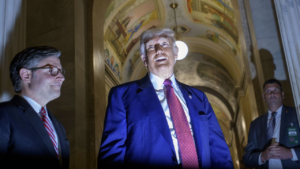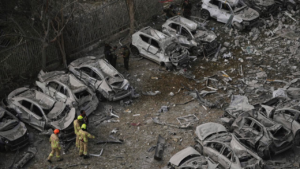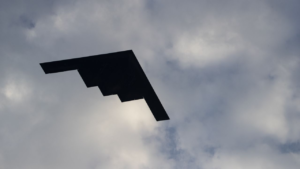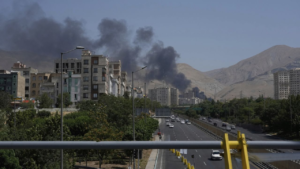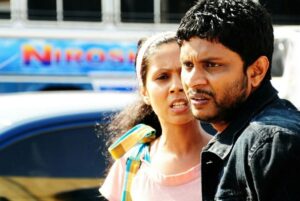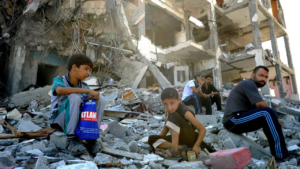By Nandana Nannetti
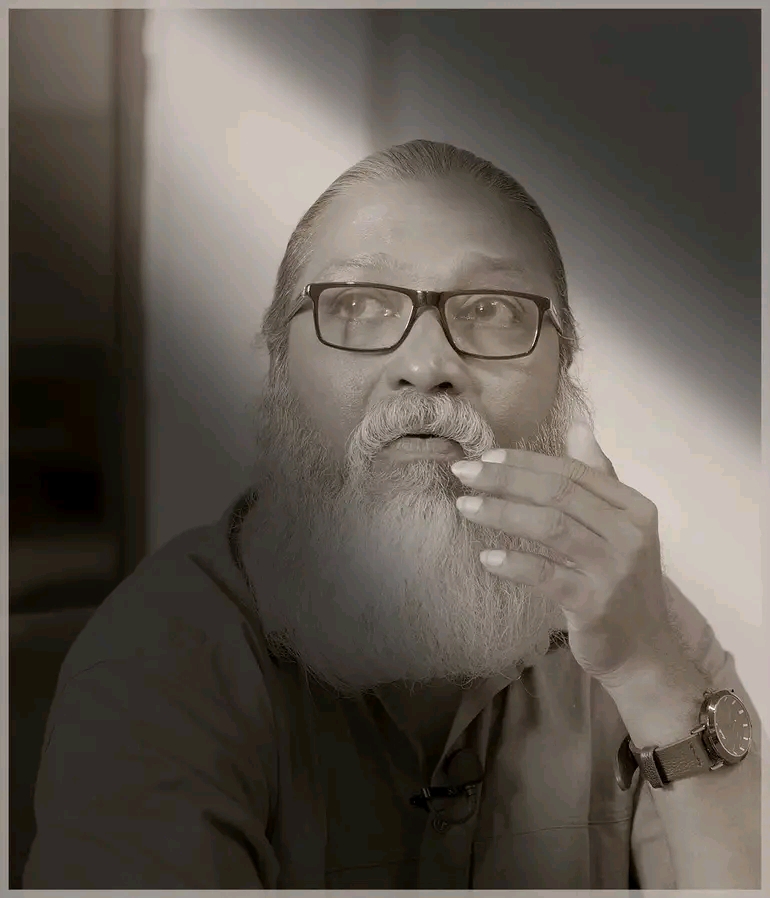
Form workers’ Action Committees to defeat social counter-revolution, and defend democratic rights!
President Ranil Wickremesinghe’s government, on January 5, arrested Sepal Amarasinghe, another social media activist, through the Criminal Investigation Department. Even now, he is in remand custody under the draconian laws. This is another step in the ongoing state repression; it is a desperate move to intimidate
the public that’s seeking the way to defeat the government’s series of economic and political attacks and drag them into religious and communal strife and dissolve their struggle in that bloody destruction.
Sepal was arrested on the charge that he “insulted” the “sacred tooth relic,,” which is hailed as a symbol of the ruler’s authority, from the feudal kings to the current Sinhala Buddhist, illegitimate capitalist state.
According to reports, Sepal has replied that I am not scared of that labba (Sinhala slang for a inconsequential thing ) “in response to a suggestion that “Dantha Dathu” ( “sacred tooth” relic ) could perform miracles. According to the submissions presented by Sepal’s lawyer to the court, Sepal has advocated “pure Buddhism” by his argumentation. He has the right to stand for it as well as tos tand against the norm.
There is a recognition that Daladava or Danta Datu is a tooth of the Buddha, the founder of Buddhism. Buddhist monks are among those who do not accept that idea. For example, Samantabhadra, a well-known monk in Sri Lanka, states that this is a “pig’s tooth” He also revealed that the sea shells are being displayed as relics.
On the other hand, ordinary Buddhists did not consider Sepal’s statement as something to be taken seriously. Those who claim that Buddhist sentiments have been hurt are referring to the parasitic religious establishment led by the Malwathu-Asgiri Maha Nayakas (chiefs of leading Buddhist sects), who are a part
of a privileged elite supporting the ruling class and to its politicians and their henchmen, who have subjected the masses to famine, pestilence and war. These members of the elite are against the people, and they are flourishing over them.
Buddhists worship the top of Adams peak ( ‘Samanala’ Mountain) as the Sri Padasthana (place of foot print of Buddha), while other religions believe that it belongs to their religion.
Adams Peak is a 2,243 m (7,359 ft) high conical mountain located in hill country of Sri Lanka. It is famous for the 1.8 m ( 5 f 11 i ) rock formation near the top of the mountain called Sri Padaya (Sacred Footprint), which is considered by Buddhists as the footprint of Buddha. According to Hindu tradition, it is the “Mountain of the Light of Shiva” and in some Islamic and Christian traditions it is considered the footprint of Adam or St. Thomas. All these beliefs are based on written sources but there is no scientific or archaeological confirmation.
Now the threat is that the followers of these kind of different religions and beliefs and the non-religious people are being forced to accept the idea of the Buddhist establishment. A person has a right to say that the Dalada ( “sacred tooth relic”) is a lie, to say that there are no miracles associated with it, to declare that they are not afraid of it, and to say what he or she believes it is a pig’s tooth or something else. The elite monks, including the Malwatta and Asgiriya sectors, who are against that democratic right, wrote to the government to take action against Sepal.
The racist members of the Parliament took action to find out from the Sepal incident that there is a "plan to provoke the people by making verbal attacks on Dalada" and paint it as causing a huge religious distress. Former minister Wimal Weerawansa, who is famous as a Sinhala-Buddhist provocateur, lamented in the Parliament saying, “safeguarding the Daladawa is the main responsibility of the state.” Another notorious racist, Justice Minister Wijedasa Rajapaksa proposed prosecution under section 290 of the Penal Code and the ICCPR Act, pointing out that it is “a criminal offense to act in such a way as to damage, offend, demean and belittle a religious belief, place of worship, property” in an effort to blow it up to a huge proportion. Many of them termed
the incident as an act of insurgency, and thrusted it against the people’s aspirations for democracy against the government’s attacks.
JVP leader Anura Kumara Dissanayake asked the government to pay attention to the fact that “society is in great danger through these types of extremist statements and conflicts” and advised the government that “everyone has a responsibility to rule without allowing provocations.” Not stopping there, he held a press conference at the JVP headquarters on January 9, saying that, “Sepal is not an activist of the National People’s Power (NPP) or the JVP or a person in its organizing mechanism, and he was in Gotabaya Rajapaksa’s camp during the last presidential election” Thus, Disanayaka expressed his agreement with the elite Buddhist monks and other reactionaries. The government detained Sepal with the support of such an alignment.
Sepal worked for Rajapaksa, and later he also publicly supported JVP. The JVP leader is quietly slipping away and justifying his stand of not opposing theundemocratic and conspiratorial act against Sepal by saying that he is not in his committees.
Malwatta and Asgiriya, who have been placed at the top of the capitalist campaign, are a property-owning, racist, casteist , reactionary, parasitic, feudal political group that owns a large portion of the country’s land. It stands for a totalitarian dictatorship dedicated to the protection of private property. These monks have suggested and demanded many times that a dictator is needed to rule this country.
It is now abundantly clear that the ruling classes of the capitalist states that emerged belatedly, such as in Sri Lanka, cannot fulfill their bourgeoise democratic tasks. Sensing this weakness, the British imperialists and capitalist elites of Sri Lanka propped up the so-called Free Sri Lankan State established by the transfer of power in 1948, increasingly on feudal institutions such as casteism, racism and religiosity. The First Parliament abolished the citizenship rights of the plantation workers, the Third Parliament brought in the Sinhala-only Act, the so-called Republican Constitution of 1972 placed Buddhism at the forefront and assembled the necessary ammunition for the fires of racist provocation against the classs truggle.
These elite monks are descenders of the feudal aristocracy who supported the Upcountry Treaty of 1815, who surrendered the country to the British imperialists. According to the reports, the treaty of betrayal signed by 12 up- country aristocrats was read, and explained to the Mahanayakas or chief prelates of both the Malwathu-Asgiri chapters including Kobbekaduwa, the chief prelate of the Malwathu chapter, who was present in the Magul Maduwa (where the king used to meet his ministers and carried out his daily administrative tasks – State Room), and was approved by them. It should not be forgotten that it was this reactionary elite who constantly campaigned for the right to religious and communal provocation in the so-called free state.
History has shown many times that this feudal institution will accept any bloodshed in order to maintain its privileges.
With the end of the communal war in 2009, the Buddhist forces attacked the Muslim and Catholic churches, divided the society into pieces and hence gave the necessary strength to the Rajapaksa regime that broke all the promises made to the people.
The Bhikkhus were at the forefront of the barbaric movement against the Muslim people, waving the racist flag that they were always at the forefront of the fight to save the country. This group was also in the forefront of the provocative act of forced cremation of Muslim bodies during the COVID-19 pandemic. These acts not only hurt the feelings of the religious and ethnic minorities but also deprived them of their lives, trades and their dwellings.
Gnanasara, a notorious monk leading such attacks, was appointed by the former President Gotabaya Rajapaksa as the chairman of an anti minority committee called “the Presidential Task Force for one country one Law” It is hypocritical on the part of monks and capitalist politicians, who have always been against the minority religious and cultural groups and have always been defending the discriminations against them, to now talk about hurting religious feelings.
Thus, the elite group of Buddhist monks – being a special force of the ruling class-and the representatives of the decaying capitalist system, are now trying to capitalize Sepal’s statement to take another leap on the minority groups. It is attempting to maintain a tension consistently, by fostering a false sense of pride and arrogance within the desperate middle class of the majority Sinhala race, firing up the chauvinistic sentiments and trying to keep the minority masses under subjugation. Being a capitalist party, the JVP also has no other program.
With the pandemic, the incompetence and brutality of the ruling capitalist class was exposed and various religious and other myths were challenged. Through the immediate struggles against capitalist austerity and political attack, the masses became aware of and learnt the dangers of the capitalist strategy of dividing the masses on ethnic lines and securing their rule. In the mass struggles that unfolded since April last year and still raging, there emerged a deep calling for ethnic unity against racism that divided the people.
The government has, anti-democratically, included the Poet and teacher Ahnaf Jazeem in a terrorist list, attached to the 2019 Easter Sunday Attack, which was highly used by successive governments to fan anti-Muslim hysteria for political gains. The offence he committed was to write a book of poetry against terrorism and imperialist crimes, which has been confirmed by the campaign
carried out by the Action Committee for the Defence of Freedom of Art and Expression (ACDAE) to secure his release. What is important here is the failure of the government's efforts to create
disharmony among the different ethnic masses who were drawn into struggle against the government's policy of foisting the burden of the economic crisis on themselves in the midst of the pandemic. Intellectuals, artists, youth, and workers of all ethnic groups stood up for Ahnaf’s democratic rights and were able to push back the racist cliques.
It is not easy for the ruling class of Sri Lanka to breath life to a racist divisive campaign again, as long as the working class and the oppressed masses safeguard their political unity. The working class has already displayed immense potential of uniting in the public struggles against the austerity and suppression, overcoming
ethnic and racist divisions. The working class must rise unitedly through mass strikes, factory occupations, pickets, etc. and defeat the dictatorial plans of the government and march forward to establish democracy. The formation of workers action committees in workplaces and neighborhoods, and to rally the farmers, youths and other oppressed people around them cannot be delayed any longer. The existing conditions, in the absence of such a mass movement, would give way for the reactionary forces to take upper-hand and defeat the masses, and pose the risk of such a fatal defeat developing into a communal-religious fascist counter-revolution against the working class and the oppressed.
(On behalf of the Colombo Action Committee)
20 January 2023

